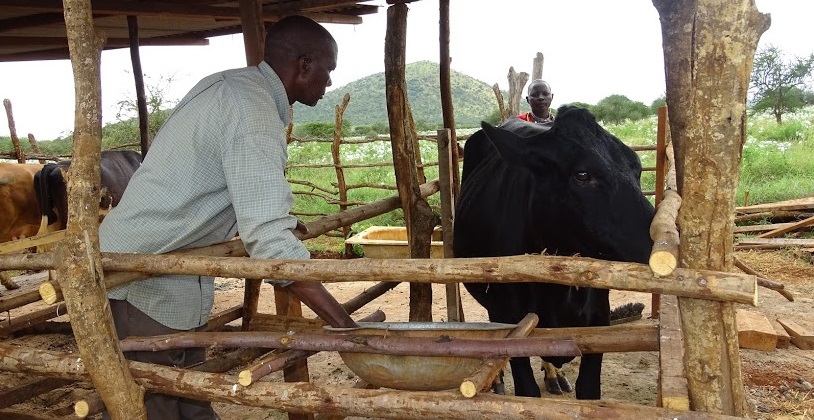New Zealand is investing nearly Ksh90 million in dairy farming and cultivation of moringa crop in Kenya. The funding by New Zealand Aid Programme is being channelled through ChildFund Kenya, which is running the Agriculture Dairy Economic Development Project in Emali, Makueni County.
The project, started in June 2017, targets a cluster of eight zones, spread across an area of roughly 50 square kilometres. New Zealand High Commissioner to Kenya Mark Ramsden said Ksh89.9 million is being injected into the community over four years to improve and develop the production of moringa, a plant with medicinal and nutritional value, as well as milk and their corresponding markets.
This programme is designed to deliver improved agriculture, diversified livelihoods as well as reliable and beneficial markets for 1,250 farming households by engaging in interventions related to moringa crop and dairy enterprises.
“By the end of the project, food security and incomes in Emali farming communities will be improved and Maasai and Kamba households will be more resilient to climatic and economic shocks,” said Mr Ramsden said during the launch of Osotua Women Milk Project Collection Centre in Emali last week.
The project beneficiaries are 75% female, 20% male and 5% youth, he said. Under the programme, farmers are being trained and funded to introduce moringa crops, while households are supported with adaptation techniques and inputs for improved livestock and diversified livelihoods through better nutrition, improved genetics and improved animal health.
The programme also includes a value-addition component where households are trained and empowered to generate income through innovative agribusiness in milk and moringa processing.
Recent studies in the area have revealed existence of real market opportunities for the development of a dairy enterprise in Emali. “At this time in Kenya, dairy regulations restricting the sale of unprocessed milk are being increasingly enforced, which means that farmers can no longer sell their raw milk to traders or their communities,” said Maclean Egesa, project manager for the Agriculture Dairy Economic Development Project.
READ: Tanzanian billionaires buy huge stake in Safaricom
Kamba and Maasai farmers are committed to dairy farming as an income generation activity. Dr Jim Gibbs, a New Zealand Veterinarian consulting for programme, found that residents have both motivation and knowledge of dairy production and can therefore develop successful businesses. “I am persuaded that both these farming communities are …heavily invested in dairy production, both as a future farming direction and because it meshes with their culture better than alternatives do,” he said.
Under the project, five milk collection centres will be established in the two counties of Kajiado and Makueni. At each collection site, milk will be tested and chilled, and then taken to a bulk-cooling tank at a separate site, where a Nairobi dairy processor will collect the milk daily.













Leave a comment